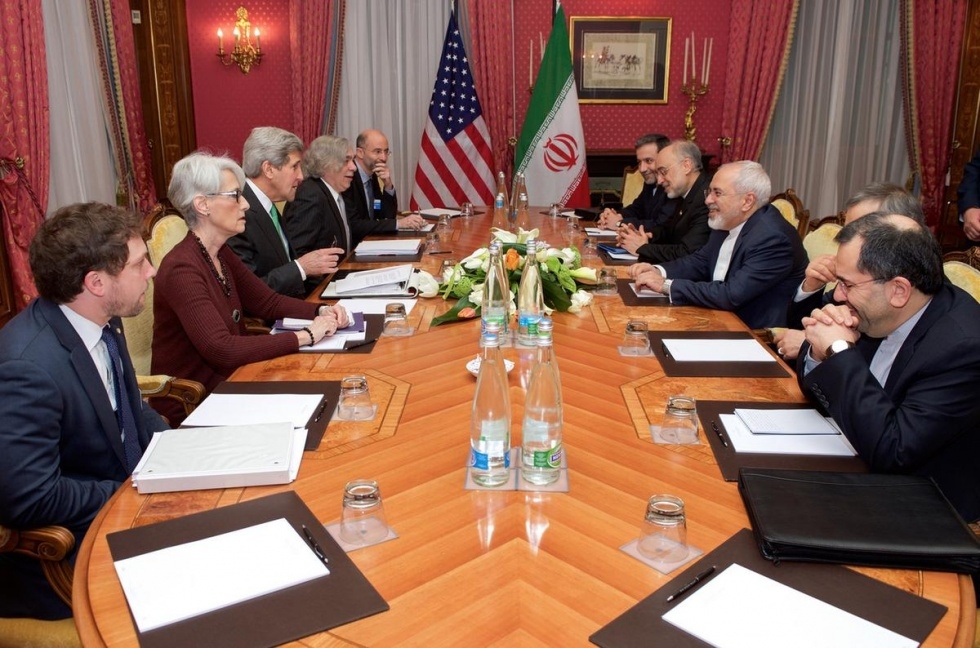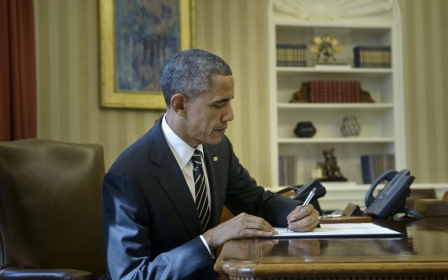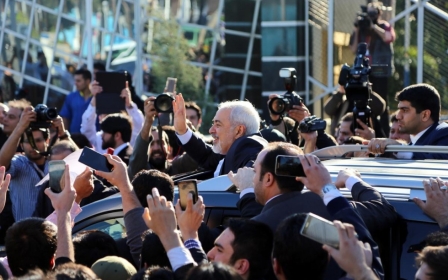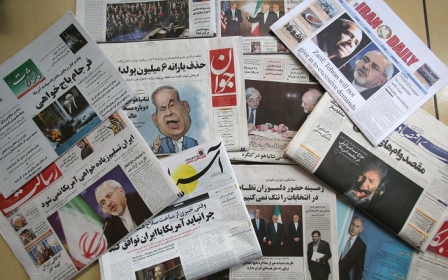Imposing colonial frameworks on the Iran nuclear deal

Israel’s disputed status as a nuclear power was recently dispelled following media publicity of a declassified 1987 Pentagon report titled “Critical Technological Assessment in Israel and NATO Nations”. The document provides insight into Israel’s nuclear research and capabilities during the 1970s and 1980s, providing an interesting historical backdrop as well as an opportunity to analyse the recent hyperbole from Israeli Prime Minister Benjamin Netanyahu with regard to the P5+1 talks on reaching a nuclear framework deal with Iran, as well as Israel’s insistence that Iran recognise the settler-colonial entity as a Jewish state.
The report, which has been hailed as a recent discovery, has been cited as proof of the US admitting knowledge of Israel’s nuclear capabilities, among other strong statements asserting that Israel’s nuclear research in the 1970s and 1980s was “equivalent to our Los Alamos, Lawrence Livermore and Oak Ridge National Laboratories”.
However, an earlier report in the New York Times dated 27 October, 1989 contains references to the declassified document, within the context of Israel’s cooperation with apartheid South Africa’s quest to develop a medium-range missile. Within this framework, the New York Times article discusses nuclear research cooperation between Israeli universities and scientific and military research institutes.
References from the declassified report indicate that the research carried out within the mentioned decade could contribute to “studying the implosion of nuclear devices”. Additionally, Israeli nuclear scientist and whistleblower Mordechai Vanunu had provided information about Israel’s nuclear programme in the Naqab - the Dimona nuclear plant - in 1986. The revelations resulted in his being kidnapped by Mossad in 1986 and convicted of leaking Israel’s nuclear secrets.
Hence the hype created in Israeli media with regard to the alleged divulging of Israel’s nuclear secrets by the US amounts to mere rhetorical attempts to distract from Netanyahu’s continued efforts in singling out Iran as a unique nuclear threat. The recent scrutiny has rendered reverting to nuclear ambiguity practically impossible. Israeli media has discussed the report within the context of the nuclear framework deal with Iran, as well as the Islamic republic’s firm anti-colonial stance - making a stark contrast with the rhetoric usually disseminated at an international level.
A joint statement issued by EU High Representative Federica Mogherini and Iranian Foreign Minister Javad Zarif commences with a statement highlighting Iran’s repeated assertions of pursuing nuclear research for civilian purposes and downplaying the rhetoric parroted by the West and Israel. “As agreed in November 2013, we gathered here to find solutions towards reaching a comprehensive resolution that will ensure the exclusively peaceful nature of the Iranian nuclear programme and the comprehensive lifting of all sanctions.” The opening statement validates Iran’s constant declarations, thus isolating the mainstream discourse aimed at demonising the country.
Iran, however, has clarified the limitations of diplomatic engagement with the US and its allies. Supreme Leader Ayatollah Ali Khamanei stated: “Negotiations with America are solely on the nuclear issue and nothing else. We do not talk with US over regional issues. In the regional issues, America’s goals are completely opposed to our goals.”
Israel’s resentment at the nuclear agreement has prompted an outpouring of reassurances from the US and aggressive rhetoric on behalf of Israeli officials. According to reports in the Jerusalem Post, US President Barack Obama said: “What we will be doing, even as we enter this deal, is sending a clear message to the Iranians and to the entire region that if anyone messes with Israel, America will be there.”
Within the context of the Iranian nuclear framework deal and Obama’s comments, the exaggerated emphasis regarding Iran can be construed as an additional step towards implementing further imperialist policies in the region. The incisive comments by Khamenei provide a verbal deterrent against the typical US interference that is currently being seen, albeit on a different level, in Cuba through the normalisation of relations, and in Venezuela by funding violent opposition to Nicolas Maduro’s government.
It is also prudent to recall that the plan following the US invasion of Afghanistan was, according to General Wesley Clark, “to take out seven countries in five years, starting with Iraq, and then Syria, Lebanon, Libya, Somalia, Sudan and, finishing off, Iran”. Demonising Iran has long provided a fulcrum for the security rhetoric and terror threat spouted by the US and Israel. Juxtaposing Iranian “national pride” and Israel’s alleged vulnerability, Obama illustrates a scenario where, in compensation for Iranian willingness to negotiate upon its nuclear programme, Israel will be bequeathed with additional reassurances - this time bringing into the equation Iran’s staunch anti-colonial stance that refutes recognition of Israel.
As Israel embarks upon extensive lobbying against the Iranian nuclear agreement, Israeli Minister for Strategic Affairs Yuval Steinitz declared military action against Iran was still an option considered by the settler-colonial state. Defence Minister Moshe Ya’alon exhibited his usual belligerent hyperbole, stating: “Iran is a terrorist monster that funds, trains and arms organisations and entities to wreak havoc among the pro-Western regimes in the Middle East and around the world, and it has no intention of stopping this.”
Furthermore, Netanyahu has also insisted that the final deal with Iran should include “a clear and unambiguous Iranian recognition of Israel’s right to exist”, embarking upon the usual selective choosing of phrases that, according to Netanyahu, prove Iran’s ambition of destroying Israel. While other countries have also stipulated their non-recognition of Israel, the affirmations are diluted by support for the two-state conspiracy.
During Operation Protective Edge and its aftermath, both Iran and Venezuela were at the helm of internationalist support for Palestine - Iran through providing military assistance to Hamas and Venezuela embarking upon humanitarian aid and the foundations of rebuilding Gaza through education. At an international level, however, both countries’ stances provided unique insights into Palestinian support and internationalist resistance that differed between themselves and within the global context.
Despite its support for Palestine on a humanitarian level and its role in building Palestinian resistance through education, Venezuela’s diplomatic engagement remains centred upon the two-state paradigm. Iran, on the other hand, has aided Palestinian resistance and vehemently opposed Israel’s existence - a stance that contrasts with that of Venezuela and brings the role of the international community to a greater disparity, exposing the West’s hypocritical stance of applauding and supporting Israel’s colonial endeavours.
- Ramona Wadi is an independent researcher, freelance journalist, book reviewer and blogger specializing in the struggle for memory in Chile and Palestine.
The views expressed in this article belong to the author and do not necessarily reflect the editorial policy of Middle East Eye.
Photo: Members of the US and Iranian negotiating teamsNew MEE newsletter: Jerusalem Dispatch
Sign up to get the latest insights and analysis on Israel-Palestine, alongside Turkey Unpacked and other MEE newsletters
Middle East Eye delivers independent and unrivalled coverage and analysis of the Middle East, North Africa and beyond. To learn more about republishing this content and the associated fees, please fill out this form. More about MEE can be found here.





